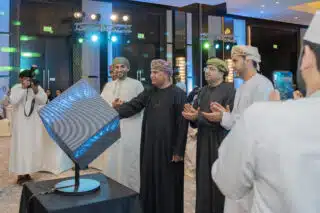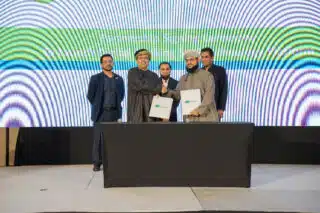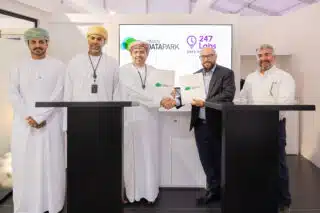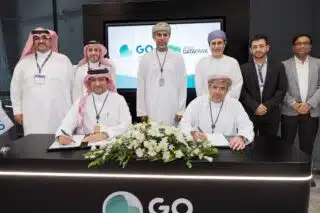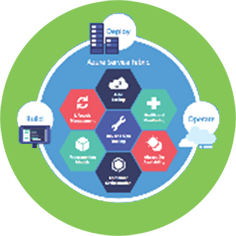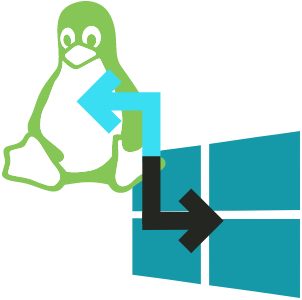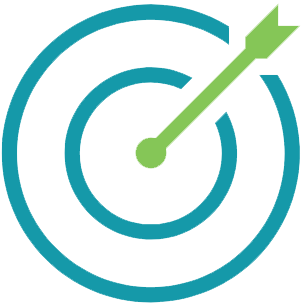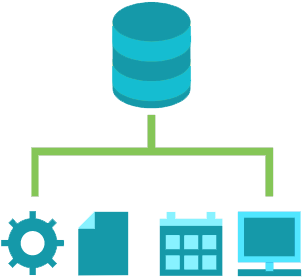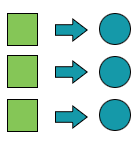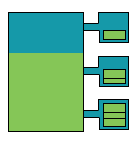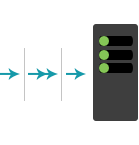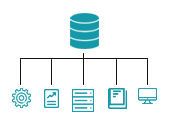MUSCAT, June 2021
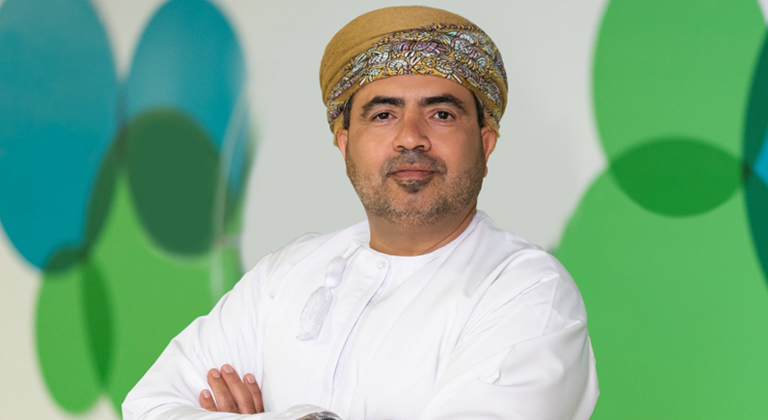
The Business Year talks to Maqbool Al Wahaibi, CEO of The Data Park, about activities in recent months, technology in the Omani economy, and international growth plans.
What have been the main activities of The Data Park over the past year?
The Data Park is the leader in Oman when it comes to cloud services provision. This is because we started very early. We started with a pure data center and then went one step further by providing cloud services. Today, we have four types of services and the past year has seen new additions to each of them. The first of the four is Infrastructure as a Service (IaaS) which now has our own product, Nebula – Oman’s first and only virtual data center. It also has another version built in called Nebula Lagoon, which, is open source. Nebula serves critical workloads from key industries such as banks and oil & gas, while Lagoon is more in the mid and small market cap. They have different service level agreements in terms of availability. On top of this, we signed an agreement with Microsoft to provide Microsoft Azure in Oman, and we have another platform that sits on Oracle cloud. In addition to IaaS, we started providing Platform as a Service (PaaS), which is more into database, as well as Software as a Service (SaaS), one of which is the e-signature which is marketed in Oman as eSign. This e-signature solution is the only such service in Oman that is connected to the national PKI system and is integrated with the ID card so that every corporation and citizen can use it confidently knowing that the signing parties are authenticated. We also provide another platform, Logistics as a Service (LaaS), which is for logistic SMEs in Oman that want to automate their logistics process. Furthermore, in 2020, we also renamed our existing cyber security center and launched Cyber Security Park, to focus purely on managed security services, be it proactive or reactive. We also supported businesses with the COVID-19 situation where we provided a service that helps people to work remotely with the required security for their enterprise data. We call it Workspace as a Service (WaaS) and started providing it to all corporates.
What services have you planned for 2021?
In 2021, we are launching a product to provide a high-performance computing infrastructure for an Artificial Intelligence (AI) platform. We will launch it by June, and it will take us to the AI readiness space. We also look forward to focusing more on Duqm, where we have our third data center. We are considering to use Duqm as a test bed because it is a green area, with large corporations already established there. We will focus on providing IoT and AI. The idea is to work with different partners and the Duqm Authority to transform Duqm into a smart city.
What role does technology play in maintaining positive growth in the country despite the pandemic?
COVID-19 has been positive for technology. It created a different path toward a technology-rich highway. In Oman, for example, there are many developments today in regard to e-commerce that were not there before. E-commerce is growing in Oman, which has impacted us positively in terms of growth, balance sheets, cash flow, and P&L. Some of the technological changes might not be permanent, but they will transform themselves and adapt to the new mode. Those companies that do not adapt to the new ways and means of doing business might not make it, unfortunately.
What types of services have your big clients been demanding the most?
IaaS, or the cloud, is in high demand. This was due to the disruption over international supply chains, as many corporates did not have the luxury of procuring IT hardware from different countries like before. There were many delays with imports of servers and storage devices, so we helped them seek an alternative: a local cloud. The second-most demanded were applications that promoted remote working, like Workspace as a Service. Other applications like e-signatures and Logistics as a Service were also in demand.
What can the government do further to facilitate the growth of the ICT sector?
Oman is positively geared toward the gig digital economy, and the government has its own initiatives and frameworks that will drive this transformation. We see ourselves as enablers and partners in this journey, as IT transformation and the gig economy sit on clouds. The business model of cloud purely sits on what we call economies of scale, which is why it is cheaper and the smarter way of doing things. The first step toward transforming one’s company is cloudifying your product. Now, the government understands it is in great need of optimization, namely a cloud that results in at least 35-40% reduction in total cost of ownership over a period of three to five years. We have done this with the banking sector; today, 12 banks are hosted in TDP data centers. The same model is now embraced by government entities but slowly. The other side of the story is gearing up the service sector, namely providing robotic process automation and automating the services that we provide to citizens. We need to make it easier for citizens to acquire and pay for services in a seamless manner online using digital platforms. That is where you can create an SME market in the gig economy. The service sector in Oman is one of the ways of bringing up SMEs and improving the SME sector. One day, we hope to see ICT companies in the stock exchange of Oman, as that would mean that the gig economy is playing its part.
What is your long-term strategy for international growth, and what challenges do you expect?
The Data Park’s next step is to grow internationally. Saudi Arabia and Africa are interesting markets for us. To work there, we are seeking partners that would take forward The Data Park’s portfolio, sell it, and position it in those countries. There are two ways of doing this: through digital channels, where a large portion of data will sit in The Data Park’s main data centers; or through localized data centers in a foreign country. Nebula, for example, is our own product that we can ship and allow our partner to run. Currently, we are in talks with a few partners in Saudi Arabia and Africa. Some of them are small cloud or internet service providers, while others are system integrators and IT companies that are seeking to diversify their portfolios. We go in and diversify their portfolios by positioning our products and services. We are also working with corporates in Oman, like ports, to channel us outside, as they have many international relationships.

